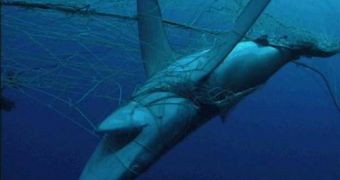The United Nations Environment Programme has recently announced that, in the aftermath of several concerns raised by conservationists, as many as 50 countries worldwide have agreed to join hands and push for the implementation of green-oriented campaigns intended to protect migratory shark species.
More precisely, the city of Bonn, Germany witnessed the meeting of several government representatives, who all agreed that a new global conservation plan for sharks had to be set in place as soon as possible, supposedly to help boost the efficiency of similar initiatives presently undertaken only on a local scale.
Apparently, the actions that are soon to follow the signing of the Memorandum of Understanding on the Conservation of Migratory Sharks will revolve around getting scientists, high officials, governmental organizations and NGOs to work together in order to better monitor these marine animals.
As well as this, it is expected that such a collaboration will help make the process of collecting data regarding the migratory paths chosen by various shark species a much easier one.
Given the fact that these animals are first and foremost threatened by improperly planned and carried out fishing activities, this comes as good news indeed.
More so seeing how representatives of the fishing industry are to also become involved in this conservation project.
Hopefully, this will translate into fewer sharks being accidentally caught by fishing vessels.
As well as this, the officials and conservationists behind this agreement hope that new fishing standards can help diminish the environmental impact of the global shark fin market, which presently kills between 26-73 million such animals on a yearly basis.
For those unaware, shark fin soup is regarded as a delicacy in the traditional Asian cuisine, and sometimes even shark liver oil and cartilage skeletons are put on the market.
Just for the record, out of the 1,000 species of sharks so far assessed by the International Union for Conservation of Nature, as many as 17% have been classified as being threatened.

 14 DAY TRIAL //
14 DAY TRIAL //